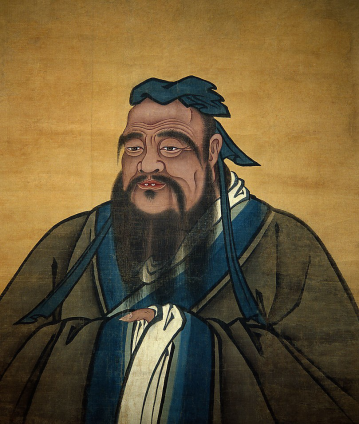About Confucius

Confucius (September 28, 551-April 11, 479 B.C.),whose given name is "Qiu" and who styled himself as "Zhong Ni", was born in Zouyi (southeast of Qufu, Shandong Province) at the end of the Spring and Autumn Period. He was a famous thinker, educator and founder of Confucianism in ancient China.
Confucius pioneered the style of private lectures and advocated “benevolence, righteousness propriety wisdom and trust”. He had three thousand disciples, including seventy-two outstanding ones. He led some disciples to travel around the country for 13 years, and revised the Six Classics ("Poetry", "Books", "Rites", "Music", "Easy", and "Spring and Autumn") in his late years. After his death, his disciples and follow-up disciples recorded his and his disciples' words, deeds, quotations and thoughts and compiled them into "The Analects ", which was regarded as a Confucian classic.

Confucius was one of the most learned scholars in the society at that time. He was venerated as the "Saint of Heaven" and “Preacher of Heaven” during his lifetime, and was honored by the later rulers as Sage Kong, The Greatest Sage, The Greatest Sage and Predecessor - Wenxuan Prince with Great Achievements, and Exemplary Teacher of All Ages. His thoughts have a profound impact on both China and the world, and are listed as the top of the "Ten Cultural Celebrities in the World". With the expansion of Confucius' influence, the ceremony offering sacrifices to Confucius once became the same level as that of Chinese ancestors.